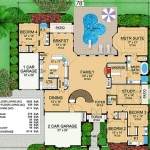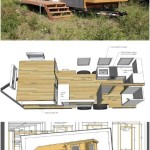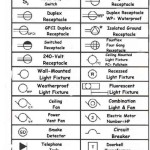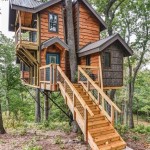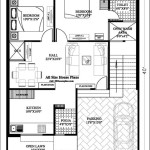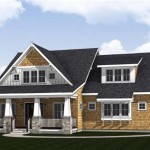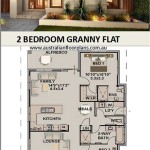Cottage House Plans With Detached Garage: Design, Benefits, and Considerations
Cottage house plans with a detached garage represent a popular architectural choice, combining the charm and comfort of cottage living with the added functionality and versatility of a separate garage structure. This layout appeals to a wide range of homeowners, from those seeking a quaint retreat to those needing practical space for vehicles, hobbies, or storage. Understanding the nuances of these house plans, including their benefits, design considerations, and potential challenges, is crucial for making an informed decision.
A cottage house, typically characterized by its smaller size, cozy atmosphere, and rustic design elements, often features steeply pitched roofs, dormers, natural materials, and an emphasis on indoor-outdoor living. The inclusion of a detached garage adds an extra layer of convenience without compromising the aesthetic appeal of the main dwelling. This separation offers several advantages, as the garage can serve as a buffer against noise and fumes, provide independent workspace, and enhance the overall curb appeal of the property.
The design of these house plans requires careful consideration of both the cottage and the garage, ensuring architectural harmony and functional integration. Factors such as lot size, building codes, and personal needs all play significant roles in shaping the final design. From selecting the appropriate materials to optimizing the layout for efficiency and accessibility, the process demands a thoughtful approach that balances aesthetics with practicality.
Advantages of a Detached Garage in Cottage House Plans
The decision to opt for a detached garage in a cottage house plan is often driven by the numerous advantages it offers. These benefits can significantly enhance the living experience and add value to the property.
One of the primary advantages is noise reduction. A detached garage physically separates vehicle noise and potential fumes from the living space, creating a quieter and healthier environment inside the cottage. This is particularly important for homeowners sensitive to noise or those with young children who need a peaceful atmosphere for rest and play. The buffer created by the detached structure minimizes disturbances and contributes to a tranquil living environment.
Another key benefit is flexibility in usage. A detached garage isn't limited to vehicle storage; it can be transformed into a workshop, studio, home office, or even a guest suite. This versatility allows homeowners to adapt the space to their evolving needs over time. The separation from the main house provides privacy and independence for these secondary uses, making it an ideal solution for individuals who require a dedicated workspace or extra living quarters. For example, an artist could use the detached garage as a painting studio, while a small business owner might convert it into a home office.
Furthermore, a detached garage can enhance the aesthetic appeal of the property. By carefully considering the architectural style and materials, it can be seamlessly integrated into the overall design of the cottage. A well-designed detached garage can complement the cottage's charm and add visual interest to the landscape. Elements like matching siding, roofing materials, and landscaping can contribute to a cohesive and aesthetically pleasing property.
Finally, detached garages often simplify construction and modifications. Because the garage is not directly connected to the house, it may be easier to build and modify separately. This can be particularly advantageous if the homeowner plans to add a garage at a later date or wants to make significant changes to the garage structure without disrupting the main house. Building codes may also be more lenient for detached structures, which can streamline the permitting process.
Key Design Considerations for Cottage House Plans With Detached Garage
Designing cottage house plans with a detached garage requires careful planning and attention to detail. Several key considerations influence the overall design and functionality of the property.
First and foremost, lot size and layout play a critical role. The available space dictates the size and placement of both the cottage and the garage. A larger lot offers more flexibility in positioning the structures, allowing for ample landscaping and setbacks. A smaller lot, however, may require a more compact design and careful consideration of zoning regulations. The layout should optimize space utilization and ensure easy access between the cottage and the garage, often through a well-designed pathway or driveway.
The architectural style of the cottage and garage should be consistent. Maintaining a cohesive aesthetic is essential for creating a harmonious and visually appealing property. The garage should complement the cottage's design elements, such as the roof pitch, siding materials, and window styles. A mismatched garage can detract from the overall charm of the cottage, so careful attention should be paid to architectural details. For instance, if the cottage features a steeply pitched roof and dormers, the garage should incorporate similar elements to create a unified look.
Accessibility and functionality are also important design considerations. The driveway should be designed to provide easy access to both the cottage and the garage, with adequate turning space and parking areas. The garage should be positioned in a way that maximizes its utility, whether it's used for vehicle storage, a workshop, or another purpose. Consider the placement of doors and windows to optimize natural light and ventilation. Additionally, the garage should be equipped with appropriate electrical outlets and lighting for its intended use.
Energy efficiency and sustainability should be integrated into the design. Consider using energy-efficient windows, insulation, and roofing materials to reduce energy consumption. Solar panels can be installed on the garage roof to generate renewable energy. Incorporating sustainable landscaping practices, such as using drought-tolerant plants and minimizing water usage, can further enhance the environmental friendliness of the property. Proper ventilation and moisture control are crucial to prevent mold and mildew growth, ensuring a healthy indoor environment.
Potential Challenges and Solutions
While cottage house plans with a detached garage offer numerous benefits, there are also potential challenges that homeowners should be aware of and address proactively.
One common challenge is the increased cost compared to attached garages. Detached garages typically require more materials and labor to construct, as they involve building a separate structure with its own foundation, walls, and roof. The cost can be mitigated by carefully planning the design, selecting cost-effective materials, and obtaining multiple bids from contractors. Consider simplifying the design and opting for durable, low-maintenance materials to reduce long-term costs.
Another potential issue is the inconvenience of walking between the cottage and the garage in inclement weather. This can be particularly problematic during the winter months or in regions with frequent rainfall. To minimize this inconvenience, consider building a covered walkway or breezeway connecting the cottage and the garage. Alternatively, investing in quality outerwear and ensuring the pathway is well-lit and properly maintained can help mitigate the discomfort.
Zoning restrictions and building codes can also pose challenges. Local regulations may dictate the size, placement, and design of detached garages, potentially limiting the homeowner's options. It's essential to research local zoning laws and building codes before starting the design process to ensure compliance. Consulting with a local architect or contractor who is familiar with the regulations can help navigate the permitting process and avoid costly delays or revisions. Setbacks, height restrictions, and material requirements should all be carefully considered.
Security concerns may also arise with a detached garage. Since the garage is separate from the main house, it may be more vulnerable to theft or vandalism. To address this, consider installing security lighting, a monitored alarm system, and reinforced doors and windows. Regularly inspect the garage for signs of forced entry and maintain the landscaping around the garage to improve visibility. Storing valuable items inside the cottage or in a secure area within the garage can further deter potential thieves.

New Popular House Plans With Detached Garages Dfd

Beautiful Cottage Style House Plan 7055 2024 Idea

New Popular House Plans With Detached Garages Dfd

Plan 21578dr 2 Bed Traditional Ranch Home With Detached Garage Style House Plans Cottage

Arts Crafts Bungalow With Detached Garage Ii

Magnolia Cottage House Floor Plan Frank Betz Associates

Plan 44206 Modern Farmhouse With Detached Garage

House Plans With Breezeway To Carport Garage Craftsman Detached Designs

Cottage Style House Plan With Garage 3 Bed 2 5 Bath

New Popular House Plans With Detached Garages Dfd
Related Posts

